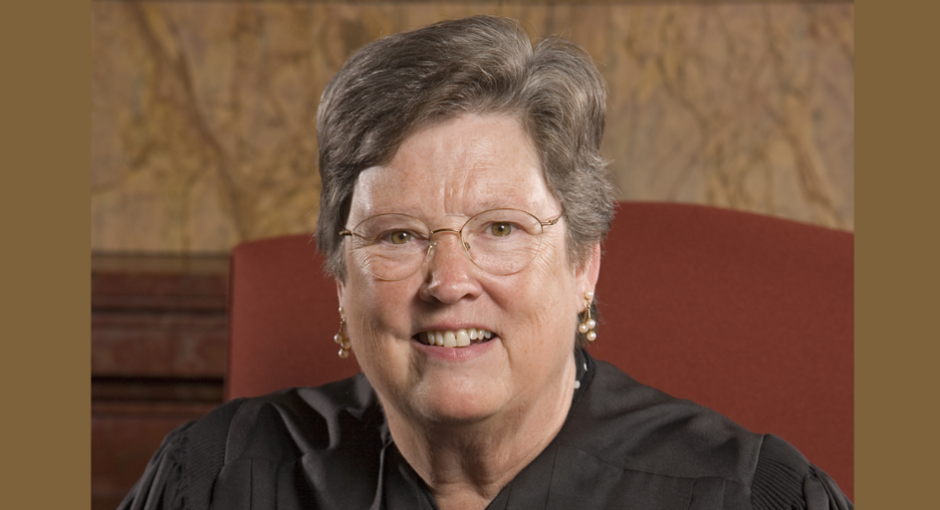Attorneys for the government and drug manufacturer Eli Lilly dueled over the legality of 340B contract pharmacy requirements during a hearing before a federal district judge in Indianapolis today.
Stakeholders are watching the Lilly case closely because, given how far along the case is in the legal process, U.S. District Judge Sarah Evans Barker could be the first judge to rule on one of the six 340B violation letters HRSA sent to manufacturers in May.
Barker issued no orders from the bench today at the end of the hearing.
“I will play the cards that were laid and try to resolve these issues on an expedited basis,” Barker said.
The two-hour-long hearing focused entirely on Lilly and the federal government’s competing views about the U.S. Health Resources and Services Administration’s contract pharmacy requirements. In March, Barker granted Lilly’s motion to enjoin HRSA from enforcing its the 340B administrative dispute resolution (ADR) regulations against Lilly. Barker said the company was likely to ultimately win its argument that HRSA violated procedural requirements when it finalized the ADR rule.
Lilly and the U.S. Justice Department (DOJ) attorneys in court today mainly repeated arguments they previously made in their briefs, Lilly on July 14 and DOJ on June 25.
For now, the main issue in the case is the legality of HRSA’s May 17 letter informing Lilly that its restrictions on 340B program pricing to covered entities that dispense medications through contract pharmacies have resulted in overcharges and are in direct violation of the 340B statute.
On Sept. 1, 2020, Lilly became the first drug manufacturer to place restrictions on 340B-use in the contract pharmacy setting. It let entities lacking an in-house pharmacy designate a single contract pharmacy for 340B drug shipments.
Rural Michigan Health Center Gets Attention
During the hearing, DOJ attorney Kate Talmor cited a rural Michigan health center’s complaint to HRSA about Lilly’s policy. The center has a 10,000 square mile service area, Talmor said, and relies extensively on retail contract pharmacies. “Lilly will ship its drugs only to one contract pharmacy to serve these 10,000 square miles. That is unlawful and unreasonable,” Talmor said. “Lilly violates the statute when it denies these sales,” she said, “every bit as much” as when a manufacturer charges above the 340B ceiling price.
“The problem is, there’s only the one covered entity” in Michigan’s Upper Peninsula, where the center is located, Barker said. “Is Lilly responsible for the fact that there are no other covered entities up there?”
Barker also asked Talmor, “As long as Lilly provides its drugs to that covered entity and it keeps it under the ceiling, then Lilly has complied with the requirements, right?”
“I think there are two sides to the coin,” Talmor answered. “They are required to not charge more than the ceiling price, but they also are forbidden from denying these sales, which is every bit as unlawful. Day by day, every time a covered entity intends to purchase a drug, and Lilly says, ‘No, you’ve been allocated this one pharmacy, and we’re denying you this sale because you want it shipped to a different one,’ that’s a violation and it’s subject to the penalties.”
Advisory Opinion Gets Cameo
Earlier in the hearing, Barker asked Talmor if Lilly was justified in imposing any limitations or restrictions on distribution of 340B drugs.
“That’s a really important question, your honor,” Talmor answered. “The answer is, Lilly is required to treat 340B sales like commercial sales. So, Lilly is not required to deliver drugs to the moon,” she said, in reference to ex-HHS General Counsel Robert Charrow’s statement in his Dec. 30 advisory opinion that the statute requires manufacturers to offer drugs at of below 340B ceiling price to covered entities, regardless of whether the delivery site is “the lunar surface.”
“That line in the advisory opinion is unfortunate and should not be taken literally,” Talmor said. “Lilly is not required to do things for 340B purchasers that it is does not do in the commercial context.”
Later in the hearing Lilly attorney John O’Quinn said, “what the government is demanding and what covered entities are demanding is not something that remotely resembles anything in the context of commercial relationships.”
“These are not drugs that are purchased by covered entities in any meaningful sense of the term—not in economic terms, not in legal terms,” O’Quinn said. “Congress delineated 15 types of covered entities. It didn’t add a 16th by implication,” he said, referring to contract pharmacies. “That is, in effect, what is happening here. The government says these are not sales to contract pharmacies, these are sales to covered entities, but these are only nominally so.”
Debate over Replenishment Model
In the 340B contract pharmacy replenishment model, O’Quinn said, weeks or months after the fact, the contract pharmacy or a 340B third party administrator, “many of which are affiliated with the contract pharmacy chain, will go back and decide, ‘You know what, maybe that was a 340B eligible patient.’ Then they will put in an order, nominally on behalf of the covered entity, for a 340B discounted drug.”
“The parameters of deciding whether or not a patient is actually a patient of a 340B entity can vary widely,” he continued. “What you have is these algorithms where, you tweak little knobs, and suddenly, a lot more people will be considered to be eligible purchasers.”
“That’s nothing at all resembling the rules that Congress imagined,” he said.
Talmor pushed back against that depiction of the 340B replenishment model.
“Lilly is continuing to present a factually inaccurate view of what is going on here,” she said. “These aren’t algorithms that are tweaking variables and determining suddenly there are more eligible patients, that’s simply not accurate. The pharmacy is determining whether a patient that obtained a prescription obtained that prescription from a covered entity. And where that prescription is obtained from a 340B covered entity, the drug is eligible for 340B.”


